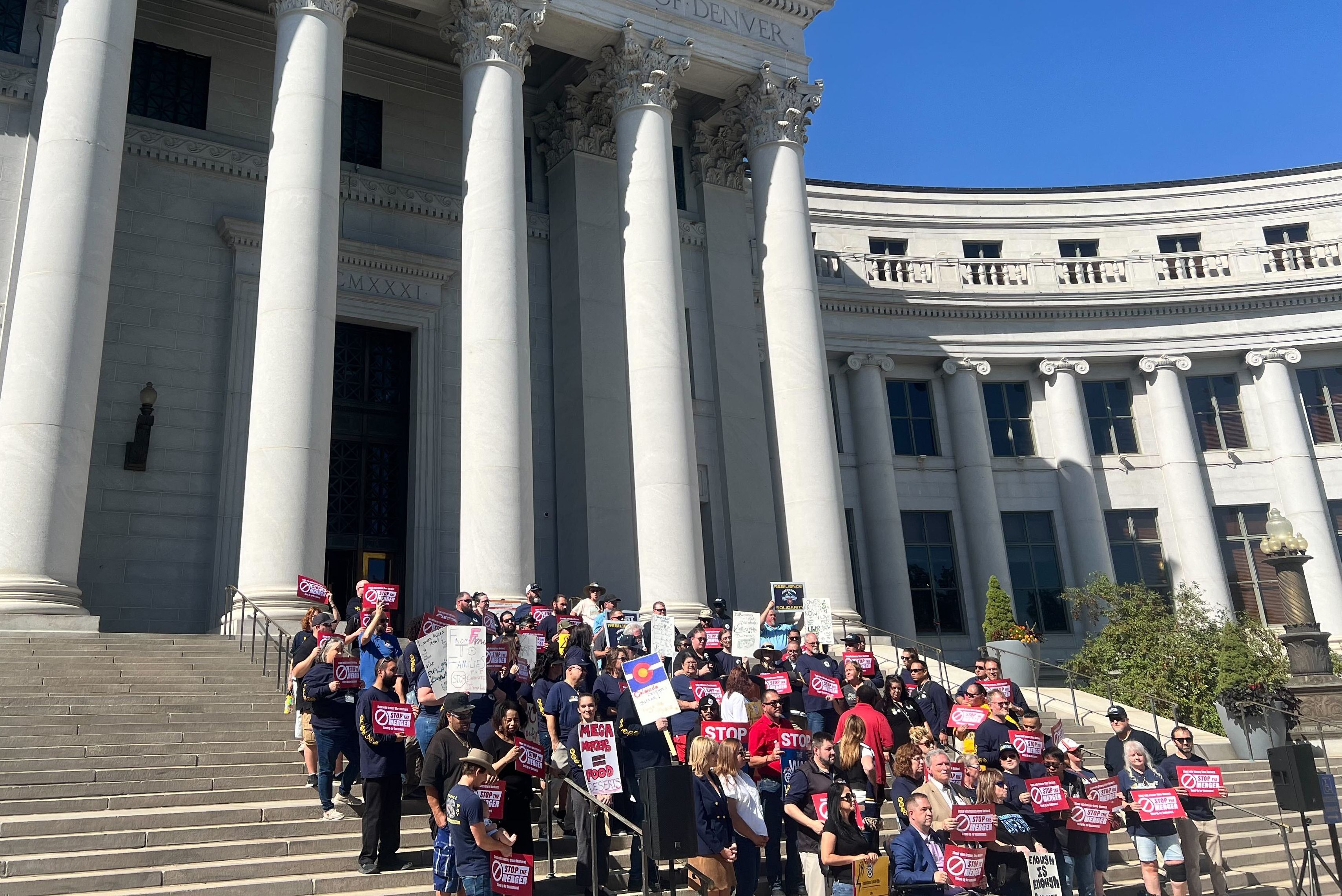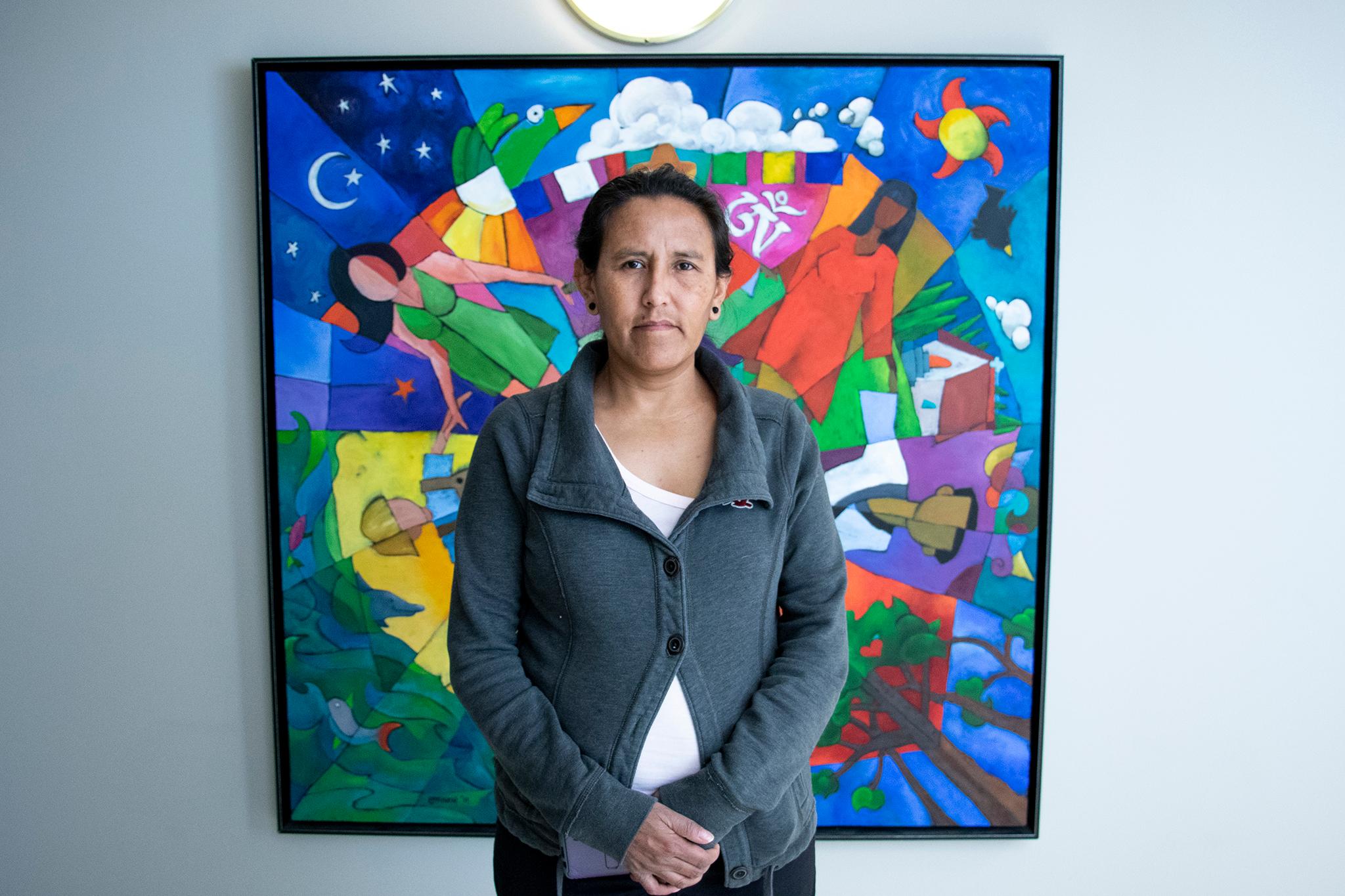
Updated at 5:48 p.m. on Sept. 30, 2024.
Gathered on the steps of Denver’s City and County Building, union representatives, grocery workers and residents stood with picket signs for a Stop the Merger Rally on Monday. The event lined up with the start of a trial between the state of Colorado and grocery giants Kroger and Albertsons, which are pushing to merge.
The rally featured some prominent local labor groups, including Rocky Mountain Farmers Union. Tyler Garrett, the union’s director of government relations, said his group represents members across Colorado, New Mexico and Wyoming.
“This merger would harm our family farmers and ranchers by taking away any power they had to negotiate prices,” Garrett said. “Right now, farmers and ranchers only get approximately $0.14 to $0.30 of the dollar that consumers spend on groceries. Do you know who gets the rest of that money? The big corporations like Kroger and Albertsons, and they don't pass that on to consumers or to their workers.”
Colorado Attorney General Phil Weiser says the merger would result in higher food prices, potential worker mistreatment, food deserts and negative impacts for suppliers.
Rickee Nelson, a Kroger worker from Colorado Springs, agrees with Weiser’s concerns.
“[Kroger and Albertsons are] showing record-breaking profits, but we don't see that,” Nelson said. “We as the workers, we don't get to reap the benefits of our hard work and that hurts.”
Attorneys for Kroger and Albertsons argue the merger would prevent stores from closing, saying both chains need to compete with big box stores like Walmart and Costco. In a statement, a Kroger spokesperson also said the merger was pro-union and that Kroger was committed to honoring current collective bargaining agreements.
"As union membership continues to decline nationwide, especially in the grocery industry, Kroger added more than 100,000 good-paying union jobs since 2012 and invested $2.4 billion to grow associate wages and industry-leading, comprehensive benefits since 2018," the statement said.
“Best case scenario, both companies continue to run independently of each other and compete with each other, keep stores open, keep opening new stores in food desert areas,” said Nelson.
If the state wins its case, the merger deal would end and each company would have to pay a $1 million fine for entering into an anti-competitive agreement.
Kroger operates 148 King Soopers and City Market stores in Colorado and is the largest grocery chain in the state. Albertsons has 105 Safeway and Albertsons stores and is the third largest grocery seller in the state.
The trial in Denver district court is beginning a week after the Federal Trade Commission delivered its closing arguments in a case before a district court in Portland, Oregon. The FTC is seeking a preliminary injunction to block the merger deal while its complaint goes before an in-house administrative law judge.
The attorneys general of Arizona, California, the District of Columbia, Illinois, Maryland, Nevada, New Mexico, Oregon and Wyoming all joined the FTC’s lawsuit. Separately, Washington state is also in court arguing to block the deal.
In July, a judge ordered a temporary halt to the merger while the Colorado case is being argued and decided.
Kroger and Albertsons agreed to sell 579 stores nationwide to C&S Wholesale Grocers, a New Hampshire-based company, to address concerns the combined company will create a monopoly in areas with significant overlap The divestiture plan covers 91 stores in Colorado including most of the state’s Safeway and Albertsons locations, as well as two distribution centers and a dairy farm.
The Colorado lawsuit is expected to last roughly three weeks. It’s not clear which lawsuit — the state’s or the federal one — will be resolved first.
Editor's Note: This story was updated with a statement from Kroger.









